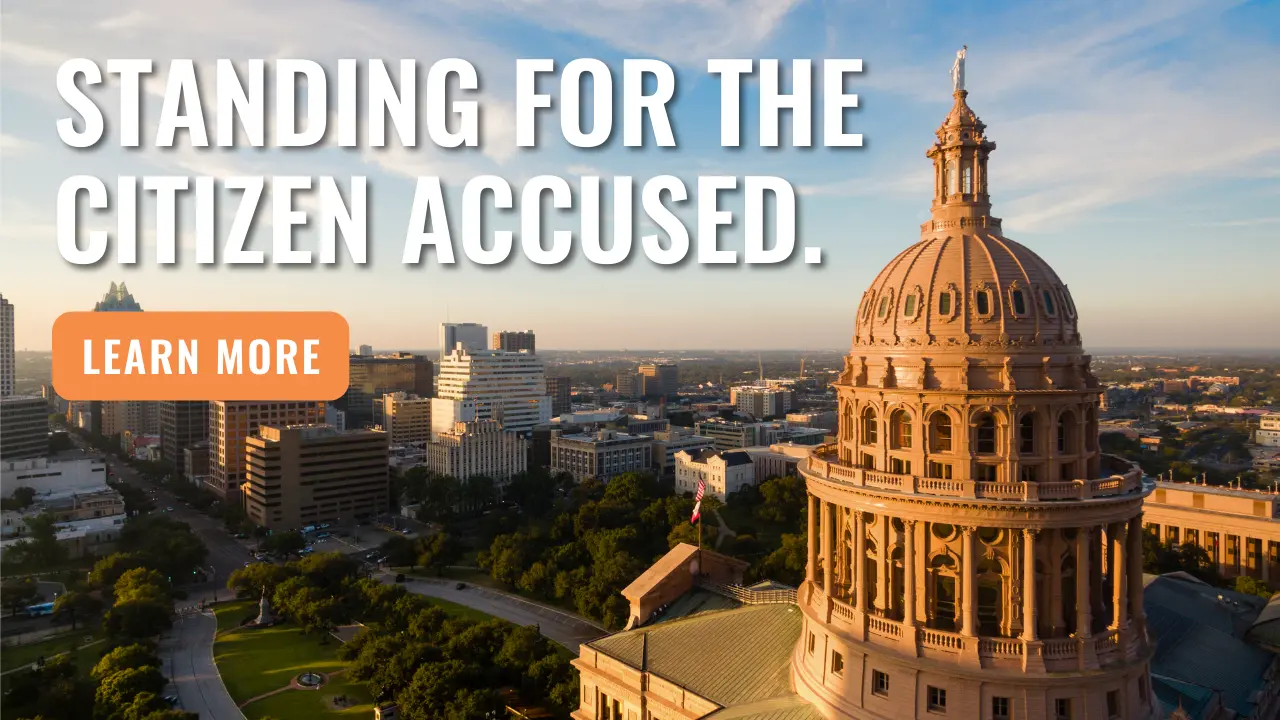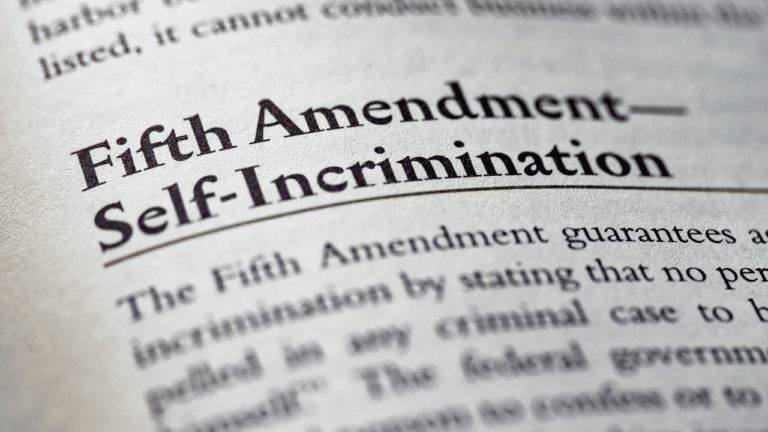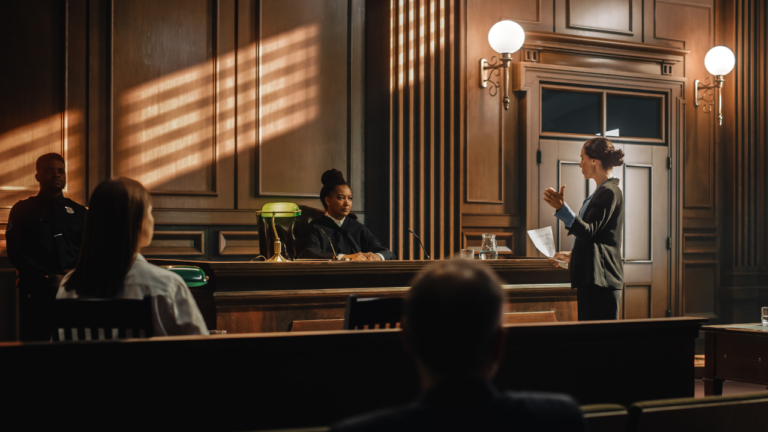 The Eleventh Amendment to the United States Constitution embodies the doctrine of state sovereign immunity, which recognizes a state as a traditional sovereign entity that is immune from suit in federal courts unless it gives consent.
The Eleventh Amendment to the United States Constitution embodies the doctrine of state sovereign immunity, which recognizes a state as a traditional sovereign entity that is immune from suit in federal courts unless it gives consent.
What is the Eleventh Amendment in simple terms?
Eleventh Amendment sovereign immunity stands for two propositions: (1) that each state is a sovereign entity in the federal system; and (2) that it is inherent in the nature of sovereignty not to be amenable to suit brought by an individual against the state without the state’s consent.
What is Article III of the Constitution of the United States?
Article III, Section 2 of the United States Constitution establishes federal courts’ jurisdiction to hear a case by specifying the circumstances and parties to which the judicial power of the National Government applies. The text reads: The judicial Power shall extend to all Cases, in Law and Equity, arising under this Constitution, the Laws of the United States, and Treaties made, or which shall be made, under their Authority;—to all Cases affecting Ambassadors, other public Ministers and Consuls;—to all Cases of admiralty and maritime Jurisdiction;—to Controversies to which the United States shall be a Party;—to Controversies between two or more States;—between a State and Citizens of another State,—between Citizens of different States,—between Citizens of the same State claiming Lands under Grants of different States, and between a State, or the Citizens thereof, and foreign States, Citizens or Subjects. According to Article 3 Section 2, judicial power is the power of a court to decide and pronounce a judgment and carry it into effect between persons and parties who bring a case before it for decision. This means litigants must bring before the courts only ripe cases and controversies established by law or custom for the protection or enforcement of rights, or the prevention, redress, or punishment of wrongs. See Smith v. Adams, 130 U.S. 167 (1889). Article III sets forth the exclusive catalog of permissible federal court jurisdiction, and Congress may not use its lawmaking powers to abrogate states’ sovereign immunity from suit in federal courts. The principles of federalism inform Eleventh Amendment doctrine. Federalism requires that Congress accord States the respect and dignity due them as residuary sovereigns and joint participants in the Nation’s governance.
How is the Eleventh Amendment related to Article III Section 2 of the U.S. Constitution?
The Eleventh Amendment limits Article III’s “cases” and “controversies” that may be heard in federal courts. Although the text of the 11th Amendment would appear to restrict only the Article III diversity jurisdiction of federal courts, it actually stands “not so much for what it says, but for the presupposition . . . which it confirms.” Alden v. Maine, 527 U.S. 706 (1999). That presupposition is sovereign immunity, despite the misconstruction of the Constitution in Chisholm v. Georgia holding otherwise.
WHAT IS THE TEXT OF THE ELEVENTH AMENDMENT TO THE UNITED STATES CONSTITUTION?
U.S. Const. Amend. XI. SUITS AGAINST STATES. The Judicial power of the United States shall not be construed to extend to any suit in law or equity, commenced or prosecuted against one of the United States by Citizens of another State, or by Citizens or Subjects of any Foreign State.
WHAT IS THE HISTORICAL BACKGROUND OF THE ELEVENTH AMENDMENT?
Sovereign immunity in American law has its basis in the legal history of medieval England. The monarch’s courts were considered agencies of the monarch, deriving their authority from the person of the monarch. Paul Van Olson, Fox-Hunting The Conscience of the King into a Shallow Grave: Sovereign Immunity and Discovery as Applied to Indian Tribes in ‘AllTel Communications, L.L.C. v. DeJordy and its Implications for Discovery Practice, 58 S.D. L. Rev. 405 (2013). Despite the words of the Preamble to the U.S. Constitution, “in Order to form a more perfect Union,” the Eleventh Amendment recognizes the division and balance of power between the States and Federal Governments. The Eleventh Amendment, the first after the ratification of the Bill of Rights, was proposed by the 3rd Congress in 1794 following the Supreme Court’s decision in Chisholm v. Georgia, in which the Court held federal courts had jurisdiction to hear cases in law and equity brought by private citizens against states. In response to the Court’s ruling that states did not enjoy sovereign immunity, 12 of the 15 states—New York, Rhode Island, Connecticut, New Hampshire, Massachusetts, Vermont, Virginia, Georgia, Kentucky, Maryland, Delaware, and North Carolina—ratified the Eleventh Amendment, resulting in its adoption in 1795. South Carolina joined in ratifying the amendment in 1797.
- In Chisholm v. Georgia, Alexander Chisholm attempted to sue the State of Georgia in 1792 in the U.S. Supreme Court over payments due to him for goods that Robert Farquhar had supplied Georgia during the American Revolutionary War. The defendant, Georgia, refused to appear, claiming that as a sovereign state, it could not be sued without consenting to the suit. The Supreme Court held Georgia was not immune from suit, and Chisholm could sue for money owed.
Congress’s required countermeasures to the Supreme Court’s surprising misconstruction of the US Constitution came as a result of its assumption that sovereign immunity was an accepted truism. The Constitution’s structure and history make clear that the States’ immunity from suit is a fundamental aspect of the sovereignty they enjoyed before the Constitution’s ratification of the Eleventh Amendment. Alexander Hamilton wrote in The Federalist Papers that the States retain a “residuary and inviolable sovereignty” under the federal system established by the Constitution. Alden v. Maine, 527 U.S. 706 (1999) (citing The Federalist No. 39). The founding generation considered immunity from private suits central to the dignity of sovereignty, and said doctrine was universal when the Constitution was drafted and ratified. The Supreme Court’s holding in Chisholm v. Georgia thus deviated from the original understanding of the Framers, which was to preserve States’ traditional immunity from suit. The Amendment’s text and history also suggest that Congress acted not to change, but to restore the original constitutional design. The swiftness and near unanimity with which the Amendment was adopted indicate that the decision in Chisholm had not captured the original understanding. The Supreme Court’s decisions since then reflect a settled doctrinal acceptance that sovereign immunity derives not from the Eleventh Amendment, but from the structure of the original Constitution. The 11th amendment confirmed rather than established sovereign immunity as a constitutional principle. Alden v. Maine, 527 U.S. 706 (1999).
WHAT IS SOVEREIGN IMMUNITY UNDER THE ELEVENTH AMENDMENT?
States retain the “dignity, though not the full authority, of sovereignty.” Alden v. Maine, 527 U.S. 706 (1999). This means that state governments and other sovereign nations, such as Indian tribes, cannot be sued in federal court without their consent, and for a limited purpose.
Who has sovereign immunity?
State governments and Indian tribes or nations are protected by sovereign immunity. There are two basic reasons for recognizing sovereign immunity: (1) sovereigns have immunity because they are sovereign—i.e., autonomous and independent; and (2) sovereign immunity protects the government treasury.
Where can States be sued?
Sovereign immunity likewise applies at the state court level, and just because a State gives a private party permission to file suit in state court does not mean it has waived the 11th Amendment in federal court. Immunity from suit in federal court is not enough to preserve the dignity due the States as residuary sovereigns and joint participants in the Nation’s governance.
When can States be sued?
States and Congress have given private citizens and other parties permission to sue state governments and other sovereigns such as Indian tribes if the suit seeks prospective injunctive relief in order to end a continuing federal-law violation. Congress may abrogate the States’ sovereign immunity if it has unequivocally expressed its intent to abrogate the immunity, and has acted pursuant to a valid exercise of power. Although Article I of the Constitution gives Congress legislative authority—whether found in United States Code or the Federal Register among other regulations—it may not abrogate unilaterally the States’ immunity from suit unless it was done pursuant to a constitutional provision granting Congress that power. For example, Congress may not take countermeasures or circumvent the Eleventh Amendment immunity by replacing it with a grant of some other authority, such as federal funds. Thus, a State accepting federal funding does not establish, by itself, that a State has consented to suit in federal court. Congress adopted 42 U.S.C. § 1983 to permit civil actions against individuals acting as state agents who abused their authority. Section 1983 does not abrogate the Eleventh Amendment immunity of the States. It does not explicitly and by clear language indicate on its face an intent to sweep away the States’ immunity, nor does it have a history which focuses directly on the question of state liability. Additionally, a suit for money damages may be prosecuted against state officials in their individual capacity for unconstitutional or wrongful conduct fairly attributable to the officials themselves, so long as the relief is sought from the officers personally rather than the state treasury.
What is a 1983 claim?
A claim under Section 1983 of Title 42 of the United States Code is a civil action brought by an individual against a person acting under color of state law or government organization for abuse of power. The purpose of § 1983 is to deter state actors from using their badges of authority to deprive citizens of their federally guaranteed rights, and to provide relief to victims if such deterrence fails. Such claims are not barred by the Eleventh Amendment because they are not brought against the State itself. Rather, they are brought against state actors who abuse their power by deviating from their authority. For example, in Nance v. Ward, a prisoner (Nance) who was sentenced to death in Georgia brought suit under § 1983 to enjoin, or prevent, Georgia from using lethal injection to carry out his execution, arguing the method of execution as applied to him was cruel and unusual. Instead, he suggested a firing squad, which was not an approved method of execution in Georgia. The U.S. Supreme Court held Nance’s § 1983 challenge was an appropriate legal vehicle of challenging his execution, and reversed the lower appellate court’s dismissal of Nance’s claim. Nance properly used § 1983 here. Climate change has also brought forth Section 1983 claims regarding prison conditions, given that many prisons, including those in Texas, do not have air conditioning. Although the lack of air conditioning or other forms of temperature control in prisons may be widely agreed upon as cruel and unusual, the U.S. Supreme Court has yet to address it.
WHAT ARE EXCEPTIONS TO ELEVENTH AMENDMENT SOVEREIGN IMMUNITY?
The Eleventh Amendment does not bar suits by the United States against the States, and states may sue each other. Further, a federal court may enjoin a state officer acting in his official capacity if the state official’s acts violate the Constitution. Finally, immunity is only enjoyed by the States and arms of the States, which do not include counties and municipalities. If the entity sued is not an “arm of the State,” it may be sued in federal or state court. In Northern Ins. Co. of New York v. Chatham County, Ga., the insured’s yacht was damaged when it collided with a drawbridge in Chatham County. His insurance company, Northern (“plaintiff”), sued Chatham County to recover its costs for the damaged yacht. The county claimed it was immune from civil suits due to its sovereign immunity under common law, but the Supreme Court disagreed. The County was not acting as an “arm of the state” for Eleventh Amendment purposes in its operation of the drawbridge, so it was not entitled to “residual immunity.”
What is tribal sovereign immunity?
The sovereignty retained by Indian tribes is of a unique and limited character, and the subject of some confusion. Congress has the authority to regulate commerce with Indian tribes, and for treaty-making. Thus, Indian tribes enjoy immunity from suits under most, if not all, of the same circumstances as the States, subject to Congressional abrogation under the Indian Commerce Clause. Tribal immunity developed after centuries of negotiated relationships between the United states and five tribal nations involved in early tribal immunity cases: Cherokee, Chickasaw, Choctaw, and Muscogee (Creek) Nations. William Wood, It Wasn’t an Accident: The Tribal Sovereign Immunity Story, 62 Am. U. L. Rev. 1587 (2013). With the Seminole Nation, they are collectively the “Five Civilized Tribes.” All five have established constitutional government structures similar to the federal and state governments, and have adopted variations of Western-esque economic, educational, political, and social institutions. Id.
Can one sovereign or state sue another?
Generally, yes, for prospective injunctive relief, and under other limited circumstances. Federal courts have jurisdiction over suits between state governments and the federal government, between Indian tribes and states, and between two states. In Seminole Tribe of Florida v. Florida, the Seminole Tribe of Florida sued the State of Florida and its Governor in federal district court alleging the State refused to negotiate for the inclusion of certain gaming activities in its tribal-state compact as required by the Indian Gaming Regulatory Act of 1988. The Supreme Court found that, under the Indian Commerce Clause, Indian relations are the exclusive province of federal law. The Federal Government is vested with exclusive control over the regulation of Indian commerce, and the Florida Governor is committing a “continuing violation of federal law.” The State, here, is not immune from suit by the Seminole Tribe.
ELEVENTH AMENDMENT TO THE UNITED STATES CONSTITUTION
That a State may not be sued without its consent is a fundamental rule of jurisprudence, having such an important bearing upon the construction of the Constitution of the United States. The Eleventh Amendment is but an exemplification of this fundamental rule that the judicial power granted by the Constitution does not embrace authority to entertain a suit brought by private parties against a State without consent given—not one brought by citizens of another State, by citizens or subject of a foreign State, or by its own citizens.
ELEVENTH AMENDMENT COURT CASES
The United States Supreme Court has interpreted and applied the Eleventh Amendment since its adoption in 1795, but the case law has confused Eleventh Amendment scholars.
- In Alden v. Maine (1999), a group of probation officers sued their employer, the State of Maine, in state court alleging the state had violated the overtime provisions of the 1938 Fair Labor Standards Act. The Supreme Court held sovereign immunity under the Eleventh Amendment applies to state court jurisdiction over suits for liability to private citizens—no one, including Congress, could subject a state to suit in its own state court without its consent.
- In Fitzpatrick v. Bitzer (1976), male state employees brought suit against the State of Connecticut alleging discrimination based on gender in its state retirement policies. Title VII of the Civil Rights Act of 1964 permitted individuals to sue state governments for monetary damages for discrimination based on race, color, religion, sex, or national origin. The Supreme Court held Congress had such power to abrogate sovereign immunity by enacting appropriate legislation under these limited circumstances pursuant to the Fourteenth Amendment.



















